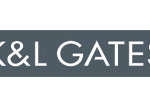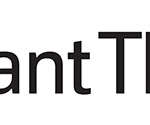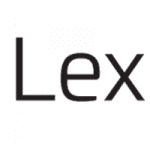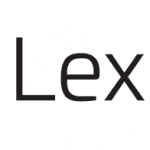Diane Bandon-Tourret and Esther Vogel discuss healthcare regulation in France
Healthcare companies have been used to dealing with several different types of litigation in France.
For years, defective product liability claims have been brought by patients against pharmaceutical and medical device companies before civil or administrative jurisdictions or before the dedicated ‘conciliation and compensation commissions for medical accidents’. More recently, in 2016, healthcare class actions have been introduced in France but under such restrictive conditions and with such long proceedings that they have so far had limited use.
Yet, in the past couple of years, claims looking at the state’s liability for the inaction of healthcare administrative bodies have arisen, as for example in the Mediator, PIP or Levothyrox cases.
Following these recent critical liability cases, the French authorities have reinforced their control, notably upon health products considered at risk.
As a matter of fact, the French public health code (CSP) entitles some administrative authorities with powers to monitor and enforce laws and regulations applicable to the healthcare sector, notably sanitary policing powers.
‘Following recent critical liability cases, the French authorities have reinforced their control, notably upon health products considered at risk.’
The principal agency in charge of such control over health products is the National Agency for the Safety of Medicines and Health Products (ANSM). It is, among others, responsible for the enforcement of the laws applicable to medicines, medical devices and in vitro diagnosis medical devices, biomaterials, cosmetics and prescription assistance software.
The ANSM is notably entitled by the CSP to make decisions relating to clinical trials, manufacturing, preparation, importation, exportation, distribution, exploitation, placing on the market, promotion and delivery or use of a health product. For example, the ANSM can submit to a specific condition or suspend the marketing authorisation of a medicine suspected of presenting a danger to human health or that does not comply with legal requirements and impose a recall of these products as well as information dissemination of this decision and financial penalties. Health products suppliers can also be investigated by the agency, including on-site inspections.
Usually, investigations from the ANSM result from data communicated to the agency, such as vigilance information, deviations found during an inspection, or a request to investigate a specific sector from the Ministry of Health, the EU or other competent agencies. Yet, a citizen can also inform administrative authorities of any violation of laws and regulations or alert the media. The recent Levothyrox crisis has shown that patients are now able to make French authorities investigate specific topics by using social media.
The ANSM’s control and sanction powers are balanced by its submission to legal rights and procedural guarantees. The agency shall comply with the decision-making process principles, such as, notably, the contradictory principle, ie the obligation, prior to any decision, to inform the person involved of its intention and to allow them to share its arguments. However, in situations of emergency, the contradictory phase can be bypassed.
Usually when an investigation is initiated by the ANSM, the company has a limited time to provide answers, which inspectors expect to be quick and unequivocal. Experience of such investigations demonstrates that efforts to co-operate are always appreciated.
It is thus advisable to be prepared for such actions, in particular for providing clear answers with the supporting documents. In this respect, procedures and responsibilities at every level of the company’s group must be clearly identified and documented. Training and simulations may help the company’s readiness to participate in such actions.
Once an investigation starts, it is recommended that the company mandate a team with members responsible for technical or scientific, regulatory, legal, business and communication aspects of the company’s activities, to internally investigate the case without delay and collect any useful information.
The risk of exposure in the media from the very beginning must also be considered, all the more so as the ANSM’s decisions may be published on its website and shared with other authorities.
Other authorities playing an important role in the regulation of the healthcare sector are the French National Authority for Health (HAS), which notably conducts medico-economic evaluations prior to reimbursement, or the Economic Committee for Health Products (CEPS), which then sets the prices of reimbursed health products.
‘Risk of exposure in the media must be considered, all the more so as the ANSM’s decisions may be published on its website and shared with other authorities.’
Litigation against decisions of such authorities raise another legal issue: the question of the binding force of soft laws, ie rules that are not binding on those to whom they are addressed but can produce some legal effects. It is notably the case of HAS recommendations setting standards of good practice or HAS opinions on the registration of products on the list of the reimbursed products and services, which are not administrative decisions as such, but may have important consequences.
On a similar topic, new questions on the binding force of some administrative decisions are expected to be raised with regard to authorisations that will be given by professional bodies or administrative authorities in the scope of the new anti-bribery law in the healthcare sector.
This anti-gift law notably prohibits healthcare professionals (as well as students, associations, and public officials within health authorities and agencies) from obtaining, directly or indirectly, advantages from companies marketing health products (of medical purposes or reimbursed) and persons performing health services. The exceptions to this general principle require the conclusion of an agreement between the above-mentioned parties and submitting it to a professional organisation (eg, the French National Medical Council) or an administrative authority.
Yet, new legislation that should be applicable in the second half of 2020, pending the publication of the enforcement decrees, provides that some of the above-mentioned agreements will be subject to prior authorisation from the relevant professional body or administrative authority. A refusal of authorisation may thus constitute a new type of administrative decision subject to appeal and proceedings before the competent court.
We notice that litigation has multiplied in the healthcare sector in France, notably against administrative decisions, and should continue growing in the coming years.


Diane Bandon-Tourret, partner, and Esther Vogel, associate, are lawyers at LexCase.















